In the context of the world undergoing strong changes in science and technology and digital transformation, Resolution 57 of the Communist Party of Vietnam on science and technology, digital transformation and innovation has become an important strategy to enhance competitiveness and promote socio-economic development.
To learn more about the importance of this Resolution for domestic and foreign enterprises, a group of reporters from Vietnam News Agency in Japan had the opportunity to talk with Mr. Nguyen Tuan Anh, Director of NAL Japan - one of the pioneering enterprises in the field of technology application and innovation in Japan.
With many years of experience in the technology industry and the role of a bridge between Vietnam and Japan, Mr. Nguyen Tuan Anh shared his perspectives on the role of Resolution 57 in promoting the transformation of the technology industry, especially in supporting businesses to innovate and digitally transform in the context of global integration.
Mr. Nguyen Tuan Anh assessed that Resolution 57 plays a very important role in orienting and promoting development policies related to science, technology and information technology. Currently, in the information technology industry, there are 6,000-7,000 senior Vietnamese personnel working in Japanese enterprises or Vietnamese enterprises in Japan, including many scientists who are holding the most important or advanced technologies.
He said that finding ways to exploit this resource is also one of the important directions to help promote science and technology in Vietnam, as well as help Vietnam quickly achieve the goal of transforming into a developed economy with upper middle income.
According to the Director of NAL Japan, Vietnam has a very good relationship with Japan. With high-tech resources, both in quality and quantity, increasing, Vietnam needs policies to attract and make good use of these resources.
Vietnamese scientists in Japan in particular and other countries in general have a lot of capacity and experience learned in other countries, so they can be very helpful to Vietnam. Mr. Nguyen Tuan Anh himself also wants to contribute to the development of Vietnam, so he hopes that there will be policies to support this, such as investing in research and development, creating an environment for scientists from both sides to participate in solving social problems or contributing to the overall development of Vietnam.
Mr. Tuan Anh said that Japanese scientists also want this, such as being able to participate in technology transfer projects, apply digital transformation to market problems, or join Vietnamese and Japanese companies to contribute to implementing common plans.
Regarding the favorable environment, Mr. Tuan Anh said that the first factor is policy incentives. For example, there should be tax incentives and business licenses in the fastest and most convenient way for Japanese enterprises to open branches or invest in technology development in Vietnam or bring technology from Japan to Vietnam.
In addition, Japanese scientists want to participate in larger-scale problems such as government projects that previously only large enterprises or government-owned enterprises were allowed to participate in.
Mr. Tuan Anh mentioned the Japanese model where the government allows all qualified enterprises, whether large or small, to participate in public projects. Mr. Tuan Anh hopes that such policies will also be implemented in Vietnam.
Regarding the key to promoting innovation in Vietnam, especially in the fields of science and high technology, Mr. Tuan Anh said that there are two directions that need to be focused on. First is training through policies and mechanisms to have a large enough team with good capacity and advanced technology level, thereby contributing to the development and process of high technology transformation in Vietnam. Second is focusing on attracting available talent such as scientists working around the world to "create a launching pad" for the completion of innovation goals in Vietnam. In Japan alone, there are currently more than 6,000 personnel working in the fields of high technology and information technology).
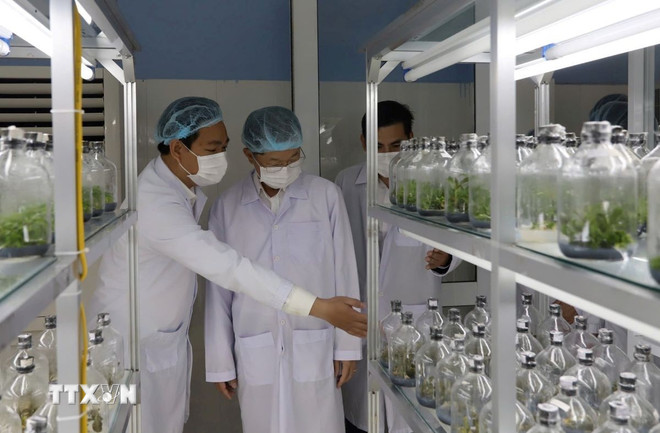
Sharing lessons from Japan's science and technology that Vietnam can apply, Mr. Tuan Anh said that Japan is a country with a fairly strong industrial development and large-scale manufacturing and industrial sectors. This country has also built standard processes and continuously continues to standardize and accumulate data. This is a very important factor to help Japanese businesses and society apply new technology and promote digital transformation.
Particularly in the field of applying high technology or Artificial Intelligence (AI), Japan is currently focusing very strongly and has a very good position. This country has both traditional industries and a huge data warehouse that can be utilized and can completely apply AI and robots to solve its problems.
Japanese localities all have policies to promote digital transformation, have budgets and appropriate programs for local businesses in developing and applying technology. Notably, Japan does not limit internal resources.
Enterprises of this country have begun to pay attention and cooperate with Vietnamese enterprises, including NAL Japan of Mr. Tuan Anh. According to this Director, this is a good direction to refer to for Vietnam's problem.
Finally, Mr. Tuan Anh mentioned the initiative of localities in Japan, demonstrated through the availability of support policies for businesses in technology application and local development cooperation, appropriate budget allocation and implementation of programs to promote digital transformation of businesses. Notably, this entire process is applied to all businesses, including Japanese and foreign businesses./.
Source: https://www.vietnamplus.vn/doanh-nhan-viet-nam-tai-nhat-ban-danh-gia-vai-tro-cua-nghi-quyet-57-post1046369.vnp


![[Photo] Ca Mau "struggling" to cope with the highest tide of the year, forecast to exceed alert level 3](https://vphoto.vietnam.vn/thumb/1200x675/vietnam/resource/IMAGE/2025/11/04/1762235371445_ndo_br_trieu-cuong-2-6486-jpg.webp)
![[Photo] Panorama of the Patriotic Emulation Congress of Nhan Dan Newspaper for the period 2025-2030](https://vphoto.vietnam.vn/thumb/1200x675/vietnam/resource/IMAGE/2025/11/04/1762252775462_ndo_br_dhthiduayeuncbaond-6125-jpg.webp)
![[Photo] The road connecting Dong Nai with Ho Chi Minh City is still unfinished after 5 years of construction.](https://vphoto.vietnam.vn/thumb/1200x675/vietnam/resource/IMAGE/2025/11/04/1762241675985_ndo_br_dji-20251104104418-0635-d-resize-1295-jpg.webp)
![[Photo] Ho Chi Minh City Youth Take Action for a Cleaner Environment](https://vphoto.vietnam.vn/thumb/1200x675/vietnam/resource/IMAGE/2025/11/04/1762233574890_550816358-1108586934787014-6430522970717297480-n-1-jpg.webp)


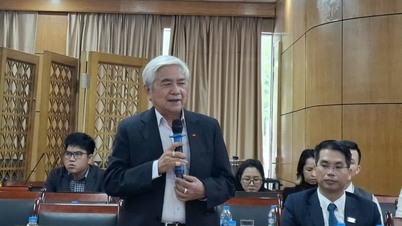


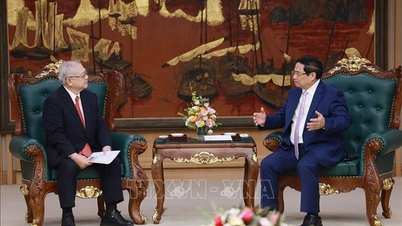



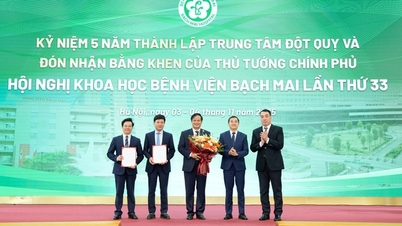

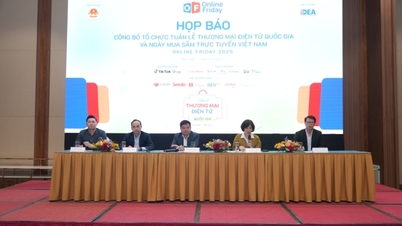












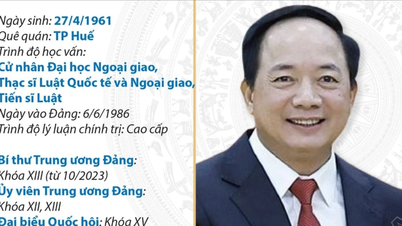



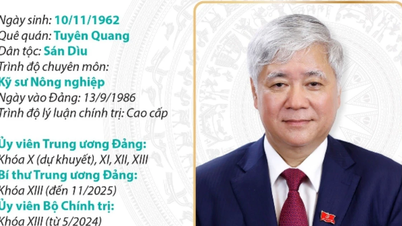
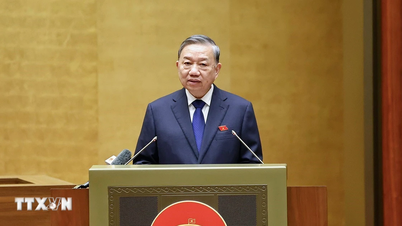

























































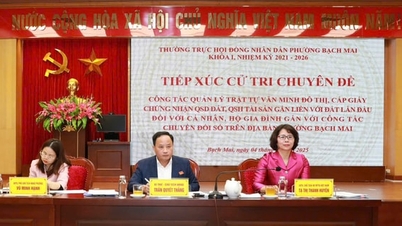














Comment (0)